On April 30, Nancy Bélanger, the Commissioner of Lobbying Canada, recommended to the Parliament that they amend the nation’s federal Lobbying Act to improve transparency when the travel of public officials is sponsored by lobbyists. Bélanger made her recommendation in […]
On April 30, Nancy Bélanger, the Commissioner of Lobbying Canada, recommended to the Parliament that they amend the nation’s federal Lobbying Act to improve transparency when the travel of public officials is sponsored by lobbyists.
Bélanger made her recommendation in her report to the House of Commons and to the Senate on her office’s investigation into sponsored travel provided by lobbyists.
The Commissioner found no violation of law related to sponsored travel, but did find a gap in the level of transparency of information disclosed in the Registry of Lobbyists.
“Amending disclosure requirements to include additional information that the Commissioner of Lobbying considers relevant would ensure that sponsored travel is captured as part of the context in which lobbying occurred,” said Bélanger in her press release.
March 27, 2019 •
Nanaimo–Ladysmith (British Columbia) By-Election Scheduled for May 6
On May 6, a by-election will be held for the electoral district of Nanaimo–Ladysmith (British Columbia) to fill a vacancy in the Canadian House of Commons. On January 7, the Chief Electoral Officer of Canada, Stéphane Perrault, had received official […]
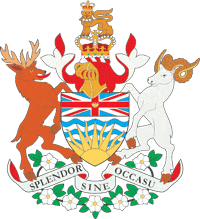 On May 6, a by-election will be held for the electoral district of Nanaimo–Ladysmith (British Columbia) to fill a vacancy in the Canadian House of Commons.
On May 6, a by-election will be held for the electoral district of Nanaimo–Ladysmith (British Columbia) to fill a vacancy in the Canadian House of Commons.
On January 7, the Chief Electoral Officer of Canada, Stéphane Perrault, had received official notice from the Speaker of the House of Commons that the seat became vacant following the resignation of Sheila Malcolmson, who resigned on January 2 to run in a provincial byelection.
On March 24, Elections Canada declared the May election date and announced the opening of its local office in Nanaimo-Ladysmith.
January 9, 2019 •
Amendments to Canada’s Election Laws Take Effect in June 2019
On June 13, 2019, amendments to the Canada Elections Act affecting spending limits for third parties and political parties takes effect. Bill C-76, the Elections Modernization Act, received Royal Assent on December 13, 2018. The bill is scheduled to take […]
 On June 13, 2019, amendments to the Canada Elections Act affecting spending limits for third parties and political parties takes effect. Bill C-76, the Elections Modernization Act, received Royal Assent on December 13, 2018.
On June 13, 2019, amendments to the Canada Elections Act affecting spending limits for third parties and political parties takes effect. Bill C-76, the Elections Modernization Act, received Royal Assent on December 13, 2018.
The bill is scheduled to take effect six months after Royal Assent, unless Elections Canada determines some portion of the law should take effect earlier. The legislation establishes measures to increase transparency regarding the participation of third parties in the electoral process by adding reporting requirements for third parties engaging in partisan activities, partisan advertising, and election surveys.
Additionally, the bill creates an obligation for third parties to open a separate bank account for expenses and creates an obligation for political parties and third parties to identify themselves in partisan advertising.
The bill also extends voting hours on advance polling days to encourage participation in the election process for voters. Bill C-76 also amends the Parliament of Canada Act to prevent the calling of a by-election for a vacant seat in the House of Commons within nine months before a scheduled general election.
January 9, 2019 •
By-Election Nanaimo–Ladysmith (British Columbia) Seat in House of Commons To Be Announced on Future Date
Sometime before July 6, 2019, a by-election will be announced for the seat in the House of Commons representing Nanaimo–Ladysmith in the province of British Columbia. On January 7, the Chief Electoral Officer of Canada, Stéphane Perrault, received official notice […]
 Sometime before July 6, 2019, a by-election will be announced for the seat in the House of Commons representing Nanaimo–Ladysmith in the province of British Columbia.
Sometime before July 6, 2019, a by-election will be announced for the seat in the House of Commons representing Nanaimo–Ladysmith in the province of British Columbia.
On January 7, the Chief Electoral Officer of Canada, Stéphane Perrault, received official notice from the Speaker of the House of Commons that the seat for Nanaimo–Ladysmith (British Columbia) became vacant following the resignation of Sheila Malcolmson, who resigned on January 2 to run in a provincial by-election.
Under the law, the by-election date must be announced between January 18 and July 6, 2019, and will signal the start of the by-election period.
According to Elections Canada, the earliest date the by-election can be held is February 25, 2019.
November 15, 2018 •
December 3 Election Date Chosen for Leeds–Grenville–Thousand Islands and Rideau Lakes (Ontario), Canada
On December 3, an election will be held for the electoral district of Leeds–Grenville–Thousand Islands and Rideau Lakes (Ontario) to fill a vacancy in the House of Commons. The seat was held by MP Gordon Brown, who died unexpectedly of […]
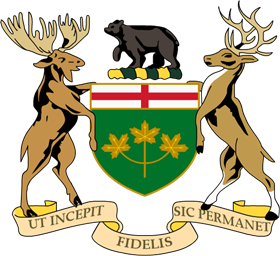 On December 3, an election will be held for the electoral district of Leeds–Grenville–Thousand Islands and Rideau Lakes (Ontario) to fill a vacancy in the House of Commons.
On December 3, an election will be held for the electoral district of Leeds–Grenville–Thousand Islands and Rideau Lakes (Ontario) to fill a vacancy in the House of Commons.
The seat was held by MP Gordon Brown, who died unexpectedly of a heart attack on May 2.
Although the seat became vacant in the spring, the election date was not chosen until October 28, which signals the start of the election period.
November 7, 2018 •
Ted Cruz Fends Off Beto O’Rourke and Keeps Senate Seat
Incumbent Republican U.S. Sen. Ted Cruz has kept his senate seat after a fierce election contest brought by U.S. Rep. Beto O’Rourke. O’Rourke, a three-term Democratic Congressman from El Paso, Texas, garnered national attention for creating a competitive race against […]
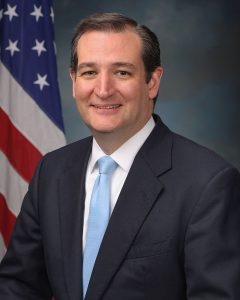 Incumbent Republican U.S. Sen. Ted Cruz has kept his senate seat after a fierce election contest brought by U.S. Rep. Beto O’Rourke.
Incumbent Republican U.S. Sen. Ted Cruz has kept his senate seat after a fierce election contest brought by U.S. Rep. Beto O’Rourke.
O’Rourke, a three-term Democratic Congressman from El Paso, Texas, garnered national attention for creating a competitive race against Cruz, who had been assumed to have a seat safe from any real election challenge.
The challenge by O’Rourke motivated president Trump, a sometimes-critic of Cruz, to hold a political rally for the Republican senate candidate in October in Houston.
Cruz’s election victory yesterday in Texas helped the Republicans keep control of the U.S. Senate.
October 3, 2018 •
By-Election For York–Simcoe (Ontario) Seat in House of Commons To Be Announced on Future Date
Sometime before March 30, 2019, a by-election will be announced for the seat in the House of Commons representing York–Simcoe in the province of Ontario. On October 2, the Chief Electoral Officer of Canada, Stéphane Perrault, received official notice from […]
 Sometime before March 30, 2019, a by-election will be announced for the seat in the House of Commons representing York–Simcoe in the province of Ontario.
Sometime before March 30, 2019, a by-election will be announced for the seat in the House of Commons representing York–Simcoe in the province of Ontario.
On October 2, the Chief Electoral Officer of Canada, Stéphane Perrault, received official notice from the Speaker of the House of Commons that the seat for York–Simcoe (Ontario) became vacant following the resignation of Peter Van Loan, who resigned on September 30. Van Loan plans to return to the practice of law, according to Bradford Today.
Under the law, the by-election date must be announced between October 12, 2018, and March 30, 2019, and will signal the start of the by-election period. According to Elections Canada, the earliest date the by-election can be held is November 19, 2018.
October 1, 2018 •
California Governor Signs “Social Media DISCLOSE Act”
On September 26, California Gov. Jerry Brown signed a bill concerning political advertising in social media. Assembly Bill 2188, the “Social Media DISCLOSE Act”, requires disclosure for advertisements made “via a form of electronic media that allows users to engage […]
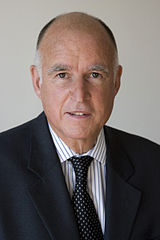 On September 26, California Gov. Jerry Brown signed a bill concerning political advertising in social media. Assembly Bill 2188, the “Social Media DISCLOSE Act”, requires disclosure for advertisements made “via a form of electronic media that allows users to engage in discourse and post content, or any other type of social media”, and is paid for by a political party or a candidate-controlled committee.
On September 26, California Gov. Jerry Brown signed a bill concerning political advertising in social media. Assembly Bill 2188, the “Social Media DISCLOSE Act”, requires disclosure for advertisements made “via a form of electronic media that allows users to engage in discourse and post content, or any other type of social media”, and is paid for by a political party or a candidate-controlled committee.
The disclosure obligations fall on both the registered political parties and committees and on the “online platforms.” The online platform must maintain and make available for online public inspection a digital copy of a political advertisement, the number of impressions generated from the ad, information regarding the total amount spent on the advertisements, and other relevant information.
The bill defines an online platform as a “public-facing Internet Web site, web application, or digital application, including a social network, ad network, or search engine, that sells advertisements directly to advertisers. A public-facing Internet Web site, web application, or digital application is not an online platform for purposes of this [Act] to the extent that it displays advertisements that are sold directly to advertisers through another online platform.” The online platforms will be required to include with each political advertisement a disclosure of who funded the ad or a hyperlink to a website containing the required disclosures.
The bill takes effect on January 1, 2020.
September 17, 2018 •
California Legislature Sends “Social Media DISCLOSE Act” to Governor
On September 12, California Gov. Jerry Brown was presented with a bill concerning political advertising in social media. Assembly Bill 2188, the “Social Media DISCLOSE Act”, requires disclosure for advertisements made “via a form of electronic media that allows users […]
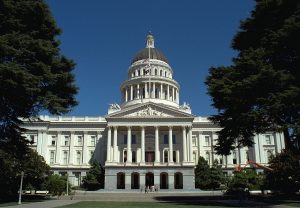 On September 12, California Gov. Jerry Brown was presented with a bill concerning political advertising in social media.
On September 12, California Gov. Jerry Brown was presented with a bill concerning political advertising in social media.
Assembly Bill 2188, the “Social Media DISCLOSE Act”, requires disclosure for advertisements made “via a form of electronic media that allows users to engage in discourse and post content, or any other type of social media”, and is paid for by a political party or a candidate-controlled committee. The disclosure obligations fall on both the registered political parties and committees and on the “online platforms.”
The online platform must maintain and make available for online public inspection a digital copy of a political advertisement, the number of impressions generated from the ad, information regarding the total amount spent on the advertisements, and other relevant information.
The bill defines an online platform as a “public-facing Internet Web site, web application, or digital application, including a social network, ad network, or search engine, that sells advertisements directly to advertisers. A public-facing Internet Web site, web application, or digital application is not an online platform for purposes of this [Act] to the extent that it displays advertisements that are sold directly to advertisers through another online platform.” The online platforms will be required to include with each political advertisement a disclosure of who funded the ad or a hyperlink to a website containing the required disclosures.
If signed by the governor, the bill takes effect on January 1, 2020.
June 14, 2018 •
Amendments to Alberta’s Lobbying Law Take Effect
On June 11, several significant amendments to Alberta’s provincial lobbying law took effect when the Lobbyists Amendment Act, 2018, came into force by Royal Assent. The most substantial change in the existing Lobbyist Act is the reduction of an organizational […]
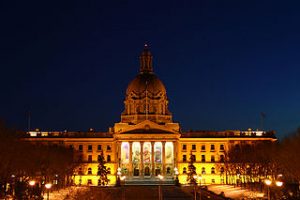 On June 11, several significant amendments to Alberta’s provincial lobbying law took effect when the Lobbyists Amendment Act, 2018, came into force by Royal Assent. The most substantial change in the existing Lobbyist Act is the reduction of an organizational lobbyist’s time threshold from 100 hours annually to 50 hours annually.
On June 11, several significant amendments to Alberta’s provincial lobbying law took effect when the Lobbyists Amendment Act, 2018, came into force by Royal Assent. The most substantial change in the existing Lobbyist Act is the reduction of an organizational lobbyist’s time threshold from 100 hours annually to 50 hours annually.
For the purposes of determining whether lobbying amounts to 50 hours annually, time spent lobbying includes time spent preparing for communication and communicating with a public office holder. Contingency lobbying is now prohibited under the Act.
Another change to the law amends the definition of lobbying to statutorily include grassroots communication as a form of regulated lobbying requiring registration. Grassroots communication does not include communication between an organization and its members, officers or employees or between a person or partnership and its shareholders, partners, officers or employees.
A lobbyist gift ban has been enacted and reads as follows, “Lobbyists are prohibited from giving or promising any gift, favor or other benefit to the public office holder being, or intended to be, lobbied that the public office holder is prohibited from accepting or that, if given, would place the public office holder in a conflict of interest.”
An additional exemption to the requirement of registering as a lobbyist was added for individuals who are recognized as elders by their aboriginal community.
May 7, 2018 •
By-Election to be Held for MP Gordon Brown’s seat for Leeds–Grenville–Thousand Islands and Rideau Lakes
On May 7, Elections Canada announced a by-election for the House of Commons will be held for the seat for Leeds–Grenville–Thousand Islands and Rideau Lakes (Ontario). The seat was held by MP Gordon Brown, who died unexpectedly of a heart […]
 On May 7, Elections Canada announced a by-election for the House of Commons will be held for the seat for Leeds–Grenville–Thousand Islands and Rideau Lakes (Ontario).
On May 7, Elections Canada announced a by-election for the House of Commons will be held for the seat for Leeds–Grenville–Thousand Islands and Rideau Lakes (Ontario).
The seat was held by MP Gordon Brown, who died unexpectedly of a heart attack on May 2.
On May 3, Stéphane Perrault, Acting Chief Electoral Officer of Canada, received official notice from the Speaker of the House of Commons that the seat was vacant.
Canadian law requires the date of this by-election be announced between May 14, 2018, and October 30, 2018, which will signal the start of the by-election period.
On April 30, the Trudeau government, through the Minister of Democratic Institutions, introduced a bill intended to reform federal elections in Canada. Bill C-76, the Elections Modernization Act, amends the Canada Elections Act to limit election periods to a maximum […]
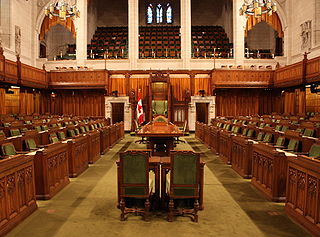 On April 30, the Trudeau government, through the Minister of Democratic Institutions, introduced a bill intended to reform federal elections in Canada.
On April 30, the Trudeau government, through the Minister of Democratic Institutions, introduced a bill intended to reform federal elections in Canada.
Bill C-76, the Elections Modernization Act, amends the Canada Elections Act to limit election periods to a maximum of 50 days, to establish spending limits for third parties and political parties during a defined period before the election period of a general election held on a day fixed, and to establish measures to increase transparency regarding the participation of third parties in the electoral process.
To achieve third party transparency, the bill adds reporting requirements for third parties engaging in partisan activities, partisan advertising, and election surveys to the reporting requirements for third parties engaging in election advertising and creates an obligation for third parties to open a separate bank account for expenses related those matters. In addition, the bill also creates an obligation for political parties and third parties to identify themselves in partisan advertising during the defined period before the election period.
The legislation also amends the Parliament of Canada Act to prevent the calling of a by-election when a vacancy in the House of Commons occurs within nine months before the day fixed for a general election under the Canada Elections Act.
Another other goal of the bill is to reduce barriers to both electoral and voting participation.
On March 7, former Manitoba premier Greg Selinger will officially resign from provincial politics. Selinger announced his resignation amid allegations of MLA Stan Struthers’s inappropriate behavior while Selinger was leader of the party. A special by-election for Selinger’s St. Boniface […]
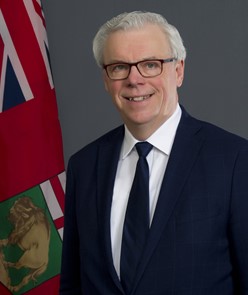 On March 7, former Manitoba premier Greg Selinger will officially resign from provincial politics. Selinger announced his resignation amid allegations of MLA Stan Struthers’s inappropriate behavior while Selinger was leader of the party.
On March 7, former Manitoba premier Greg Selinger will officially resign from provincial politics. Selinger announced his resignation amid allegations of MLA Stan Struthers’s inappropriate behavior while Selinger was leader of the party.
A special by-election for Selinger’s St. Boniface constituency MLA seat will be called by Premier Brian Pallister in the next six months, as required by law. Pallister will not commit to calling the by-election before summer, according to the Winnipeg Free Press.
Pictured: Former Manitoba Premier Greg Selinger
January 22, 2018 •
Lawsuit Challenges Trudeau’s Ethics and Lobbying Appointments
On January 18, a lawsuit was filed challenging Prime Minister Justin Trudeau’s recent appointments to head the ethics and lobbying sections of the Canadian government. The lawsuit, filed by Democracy Watch, a non-profit Canadian organization concerned with government accountability, alleges […]
 On January 18, a lawsuit was filed challenging Prime Minister Justin Trudeau’s recent appointments to head the ethics and lobbying sections of the Canadian government.
On January 18, a lawsuit was filed challenging Prime Minister Justin Trudeau’s recent appointments to head the ethics and lobbying sections of the Canadian government.
The lawsuit, filed by Democracy Watch, a non-profit Canadian organization concerned with government accountability, alleges the Cabinet failed to consult with the opposition party, as required by law, before making the appointments. The lawsuit also asserts the Cabinet has a conflict of interest because of ongoing ethics investigations, which prevent it from legally allowing the appointments.
On January 9, Mario Dion was selected to replace Mary Dawson, whose term had expired, as Conflict of Interest and Ethics Commissioner. On November 30, Trudeau nominated Nancy Bélanger as the next Commissioner of Lobbying. Bélanger replaced Karen Shepherd, who occupied the position through term extensions following the expiration of Shepard’s seven-year term in June 2016.
Democracy Watch’s press release is available here.
State and Federal Communications, Inc. provides research and consulting services for government relations professionals on lobbying laws, procurement lobbying laws, political contribution laws in the United States and Canada. Learn more by visiting stateandfed.com.

